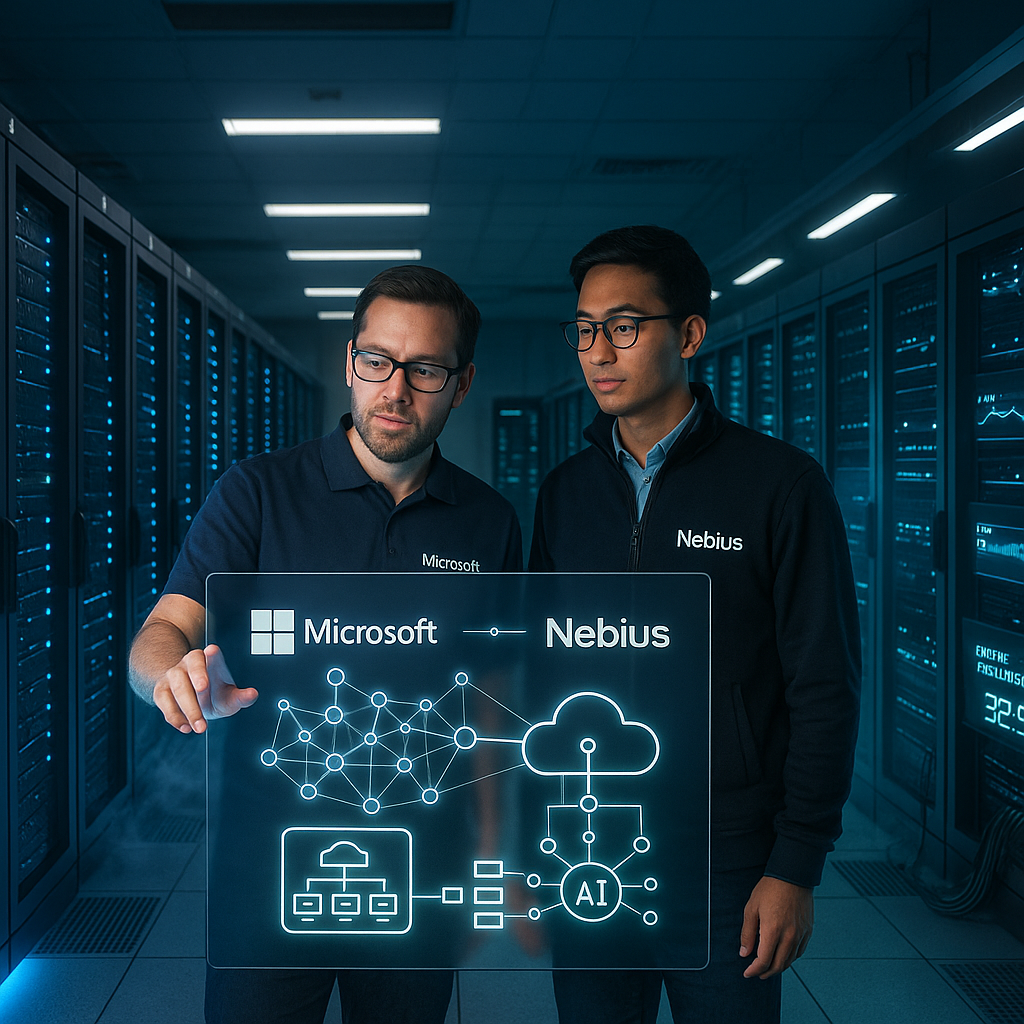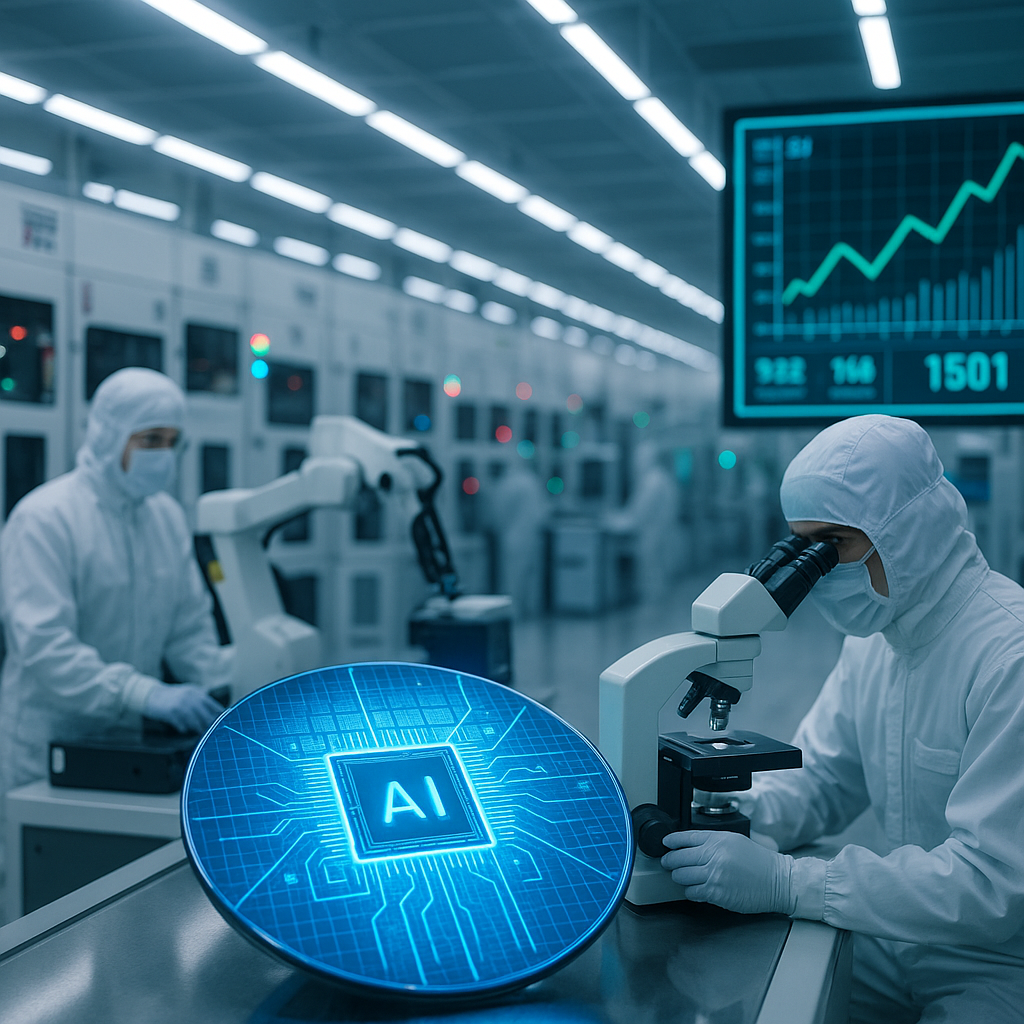Key Takeaways
- Microsoft is shifting to external AI partners with this deal, marking a change from its tradition of building all AI infrastructure internally.
- Nebius will provide key cloud and AI compute services to support Microsoft’s future AI-powered products.
- The $19.4 billion partnership signals growing competition in cloud-based AI and underscores Microsoft’s commitment to rapid expansion.
- This collaboration may prompt other tech companies to pursue specialized partnerships instead of managing all infrastructure development alone.
- Microsoft aims to begin integrating Nebius’s resources for customers by late 2024.
Introduction
Microsoft has announced a $19.4 billion multi-year AI cloud partnership with Nebius. This marks a major shift from its traditional in-house approach to artificial intelligence infrastructure. By leveraging Nebius’s specialized cloud technology, Microsoft plans to accelerate AI service development and expansion, with customer-facing features expected to launch before the end of 2024.
Deal Structure and Financial Terms
Microsoft and Nebius have entered into a $19.4 billion partnership focused on developing AI cloud infrastructure. It’s Microsoft’s largest external investment in AI capabilities so far.
Under the agreement, Microsoft will have exclusive access to Nebius’s cloud architecture and AI optimization technologies. The arrangement covers both direct investment and technology licensing, with payments distributed over five years.
A joint team of 200 engineers will work on the project, splitting operations between Microsoft’s Redmond headquarters and Nebius’s primary development center in Singapore. This model is different from Microsoft’s usual in-house development strategy. Businesses considering similar approaches to remote, distributed, or cloud-based work may benefit from exploring smart home security tips for remote workers.
Un passo avanti. Sempre.
Unisciti al nostro canale Telegram per ricevere
aggiornamenti mirati, notizie selezionate e contenuti che fanno davvero la differenza.
Zero distrazioni, solo ciò che conta.
 Entra nel Canale
Entra nel Canale
Technical Integration Details
The partnership involves integrating Nebius’s AI processing architecture with Microsoft’s existing cloud infrastructure. Nebius’s technology is recognized for efficiently managing large language models and complex AI workloads.
Microsoft will roll out these capabilities across its Azure cloud platform in phases, first targeting data centers in North America and Europe. The integration will also introduce Nebius’s cooling systems and power management solutions, which have shown 40% higher energy efficiency in initial tests.
Security protocols from both companies will be merged to form a new framework designed to protect AI workloads. This combined approach aims to strengthen security while keeping processing speeds high. To understand core concepts behind secure data management in the evolving cloud ecosystem, check out this guide on cloud vs local storage explained.
Market Impact and Industry Response
The announcement has led to noticeable shifts in the cloud computing sector, with stocks of several competitors experiencing volatility. Industry analysts believe this partnership could reshape how large tech companies approach AI infrastructure.
Goldman Sachs analyst Sarah Chen stated that the deal marks “a shift toward strategic partnerships rather than purely internal development” in the AI industry. Other market observers also see this agreement as a potential blueprint for future collaborations.
In response to the news, competitors have started to accelerate their own AI initiatives. Google Cloud has announced its expansion of AI capabilities, while Amazon Web Services is emphasizing its ongoing partnerships with specialized AI providers.
Implementation Timeline
The initial phase of integration will begin in Q1 2024, focusing on data centers in North America. Microsoft has provided the following rollout schedule:
- Q1 2024: Initial integration in select U.S. data centers
- Q2–Q3 2024: Expansion to the European market
- Q4 2024: Deployment in the Asia-Pacific region
- Q2 2025: Global availability
Joint governance committees will oversee each stage of implementation. Enterprise customers will receive monthly updates throughout the transition. For those interested in maintaining both strong productivity and security amid major tech transitions, see these remote work apps and productivity tools.
Customer Impact
Enterprise customers can expect improved AI processing and greater energy efficiency as integration continues. Microsoft has said that pricing will remain stable during the rollout.
Current Azure customers will automatically receive infrastructure upgrades as the new technology becomes available, with no extra steps required. The transition will follow Microsoft’s standard update procedures.
Some enterprise customers will have access to early programs beginning in March 2024, including dedicated support during the testing phase. As AI-driven technology continues to expand, companies and individual users should remain vigilant in protecting their digital assets—learn more about safe alternatives to dangerous apps.
Conclusion
Microsoft’s $19.4 billion partnership with Nebius is a strategic move toward collaborative AI cloud development that expands Azure’s capabilities and boosts energy efficiency. This alliance reflects evolving industry dynamics and is already prompting competitors to reassess their AI infrastructure strategies. What to watch: The phased rollout is set to begin in Q1 2024, with early access programs launching for selected enterprise customers in March. Consider reviewing fundamental blockchain basics to further understand the shifting landscape of secure, distributed technology.





Leave a Reply